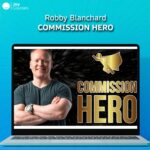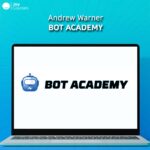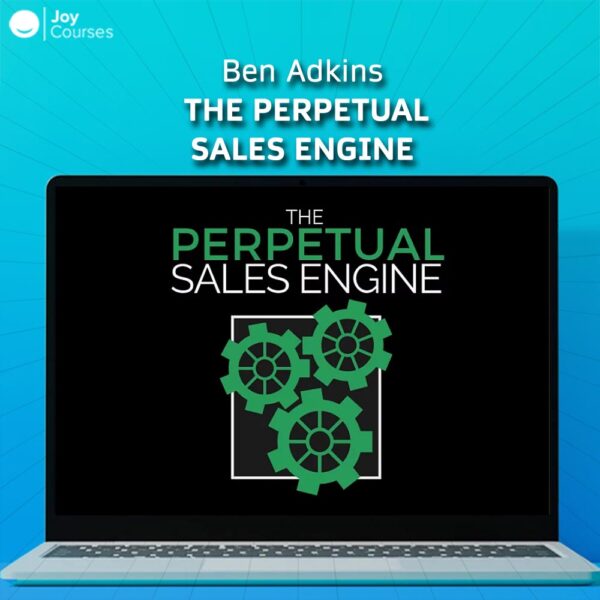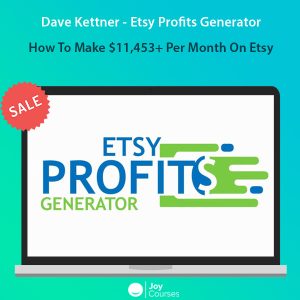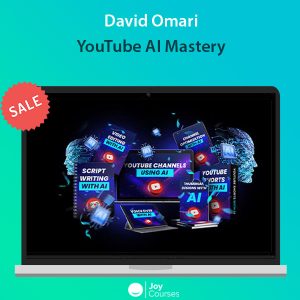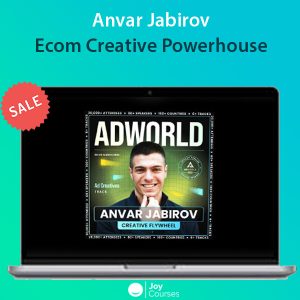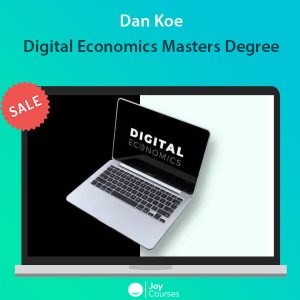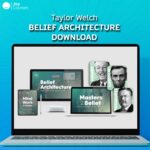Description
The Perpetual Sales Engine
![]()
The Perpetual Sales Engine is a concept and program designed to help businesses build a continuous, automated sales system that generates leads and drives conversions consistently. Developed by various marketing experts, the concept focuses on integrating digital marketing, content strategies, and automation to create a system that continuously nurtures and converts potential customers without ongoing, manual intervention.
Here’s a breakdown of the key components and strategies typically included in The Perpetual Sales Engine model:
Course Overview
- Understanding the Perpetual Sales Model
- What is a Perpetual Sales Engine?: Explanation of the perpetual sales model, emphasizing how it uses automation, evergreen content, and ongoing lead generation to create consistent revenue.
- Benefits of a Perpetual System: Insight into the advantages, such as consistent leads, scalability, and reduced dependency on active selling.
- Key Elements of Automation: Overview of core elements like sales funnels, automated email sequences, and evergreen content that fuel the engine.
- Audience Research and Segmentation
- Identifying Ideal Customers: Techniques for defining and segmenting target audiences, including buyer personas and behavior analysis.
- Market Research Tools: Recommended tools for conducting market research and understanding audience needs, pain points, and interests.
- Audience Segmentation: Methods for segmenting audiences based on behaviors, demographics, and engagement levels to create more personalized marketing.
- Building a High-Converting Sales Funnel
- Sales Funnel Basics: Explanation of each stage of a sales funnel, from awareness to decision, and the role of each in guiding potential customers to conversion.
- Creating Lead Magnets: Tips for designing compelling lead magnets, such as free resources, webinars, or trials, that attract prospects at the top of the funnel.
- Setting Up Conversion Paths: Step-by-step guide on structuring conversion paths and guiding leads toward purchasing.
- Developing Evergreen Content for Engagement
- Content Marketing Strategy: Building a content strategy with evergreen resources, such as blogs, videos, and guides, that remain relevant over time and draw organic traffic.
- Creating Value-Driven Content: Focus on delivering value with content that addresses customer pain points and questions at each stage of the buyer’s journey.
- Repurposing Content: Tips on turning one piece of content into multiple formats (e.g., blogs into social media posts, videos, etc.) to maximize reach and effectiveness.
- Automated Lead Nurturing
- Designing an Email Sequence: Setting up automated email sequences to nurture leads through educational content, testimonials, and offers.
- Behavioral Trigger Emails: Using behavior-based triggers (such as clicking a link or viewing a page) to tailor emails to individual actions and needs.
- Nurturing Cold Leads: Strategies for re-engaging leads that have shown interest but haven’t converted, using targeted offers and time-sensitive incentives.
- Driving Traffic Consistently
- Organic Traffic Generation: Building a long-term strategy for organic traffic through SEO, blogging, and social media engagement.
- Paid Traffic Channels: Overview of paid channels like Google Ads, Facebook Ads, and remarketing ads to consistently drive traffic into the funnel.
- Social Proof and User-Generated Content: Leveraging customer testimonials, reviews, and user-generated content as social proof to increase conversion rates.
- Conversion Optimization and Retargeting
- Landing Page Optimization: Key elements of a high-converting landing page, including compelling copy, strong CTAs, and trust indicators.
- Split Testing: How to conduct A/B tests on landing pages, emails, and ads to optimize for conversions.
- Retargeting Campaigns: Setting up retargeting campaigns to capture and convert visitors who didn’t initially purchase or sign up.
- Sales and Upsell Strategies
- Automating Upsells and Cross-Sells: Integrating upsell and cross-sell opportunities within the automated sales process, such as in post-purchase emails or on thank-you pages.
- Recurring Revenue Models: Strategies for incorporating subscriptions or memberships to create recurring revenue streams.
- Customer Retention Techniques: Automated follow-ups, loyalty programs, and customer service tips for keeping customers engaged and reducing churn.
- Measuring and Optimizing Performance
- Key Metrics to Track: Explanation of critical metrics like conversion rate, customer acquisition cost (CAC), customer lifetime value (CLV), and return on investment (ROI).
- Data-Driven Decision Making: Using analytics tools to make informed adjustments to campaigns, content, and funnel stages.
- Continuous Improvement: A process for ongoing refinement, using customer feedback and A/B testing results to improve the engine’s performance.
- Scaling the Engine
- Adding New Channels: Tips for expanding into additional channels like YouTube, LinkedIn, or other social platforms to broaden reach.
- Refining for Different Audiences: Segmenting and customizing funnels and automation for different customer segments or demographics.
- Expanding Product Offerings: Developing new products or services to cross-sell to existing customers within the automated engine.
Summary
The Perpetual Sales Engine is an approach that builds a sustainable, automated sales and marketing system capable of generating leads and driving conversions consistently. By combining evergreen content, behavioral automation, targeted ads, and lead nurturing, the program provides businesses with a comprehensive roadmap to achieving steady revenue and scalable growth.
